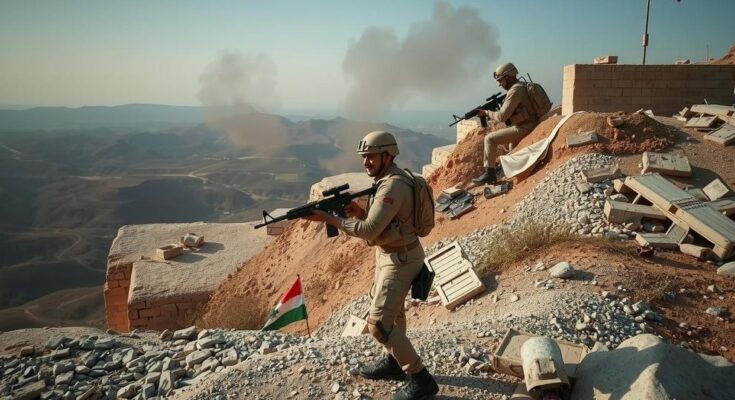The Lebanese Armed Forces entered Chamaa for the first time since the ceasefire, following an Israeli withdrawal. The military is addressing the presence of illegal arms and unexploded ordnance. Despite the ceasefire, incidents continue, including violence against civilians. French officials are monitoring security developments and reinforcing cooperation with Lebanese forces.
On the heels of the Israeli withdrawal, for the first time in over a month, a joint patrol of the Lebanese Armed Forces and the United Nations Interim Force in Lebanon (UNIFIL) ventured into the town of Chamaa. The Lebanese military is expected to re-establish its presence in the area, which has undergone significant turmoil following Israeli military operations aimed at targeting Hezbollah.
Despite the ceasefire agreement that came into effect 35 days ago, Israeli forces have been gradually withdrawing, with 25 days remaining to complete their exit strategy. The Lebanese military is poised to clear the region of illegal weaponry in accordance with Resolution 1701 of the United Nations. Concurrently, engineering teams from Lebanon have arrived in Chamaa to deal with unexploded ordnance and assess the area prior to their full operational deployment.
Recent military interventions by the Lebanese forces have included the cleansing of the Khiam area, where the military has actively sought to dismantle weapons caches and restore accessibility. The Lebanese military has asserted that it will enforce a policy of disarmament, stating: “There will be no weapons other than those of the Lebanese Army.”
Amid these developments, the Israeli military continued to caution southern Lebanese residents against returning to their homes in the recently vacated areas, citing ongoing risks to their safety. In an alarming incident, an Israeli shooting left a local resident wounded as he sought access to his agricultural land, underscoring the precarious situation in the region.
Simultaneously, diplomatic activities have been taking place, with French officials conducting visits to southern Lebanon to discuss security measures and observe military operations alongside the Lebanese forces. The delegation has engaged with military leaders, receiving security assessments and overseeing the collaboration between the Lebanese Army and UNIFIL forces.
The ongoing tensions and conflicts along the Lebanese-Israeli border have drawn international attention, particularly with regard to the activities of both the Israeli military and Hezbollah. The ceasefire agreement, which has been installed to alleviate hostilities, remains fragile as violations continue to occur. Legislative resolutions from the United Nations, such as Resolution 1701, reinforce the mandate for maintaining peace and security, particularly regarding weapon disarmament and military presence in contested zones. Recent developments indicate a gradual shift in power dynamics as Lebanese forces reassert their authority in regions previously dominated by Israeli military action.
In summary, the entry of Lebanese military forces into Chamaa represents a pivotal moment in the post-ceasefire environment, suggesting a crucial shift toward the re-establishment of sovereign control in areas impacted by slow but steady Israeli withdrawals. As the Lebanese military embarks on efforts to eliminate illegal weapons, the ongoing threats posed by Israeli military actions highlight the delicate balance that must be maintained to ensure the safety of local populations. The situation remains fluid, with diplomatic engagements continuing to unfold as stakeholders work toward a more stable coexistence.
Original Source: www.arabnews.com




